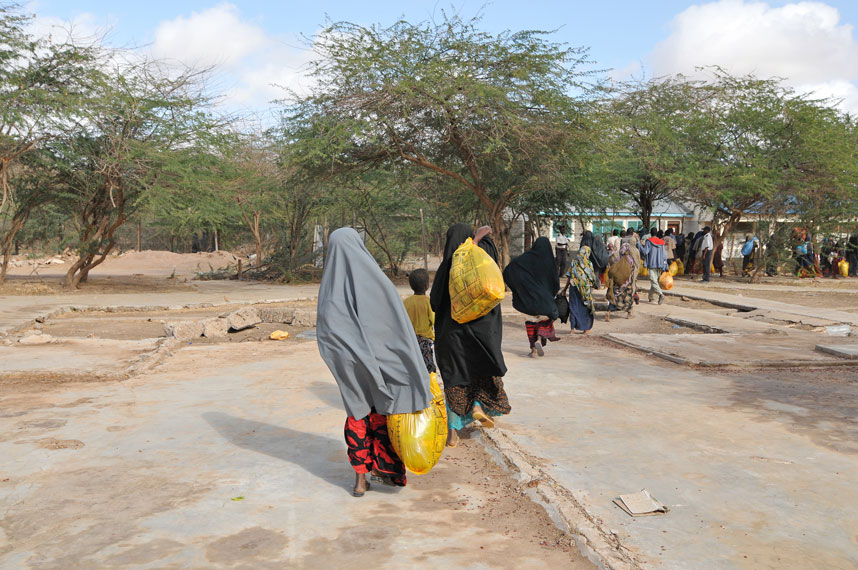
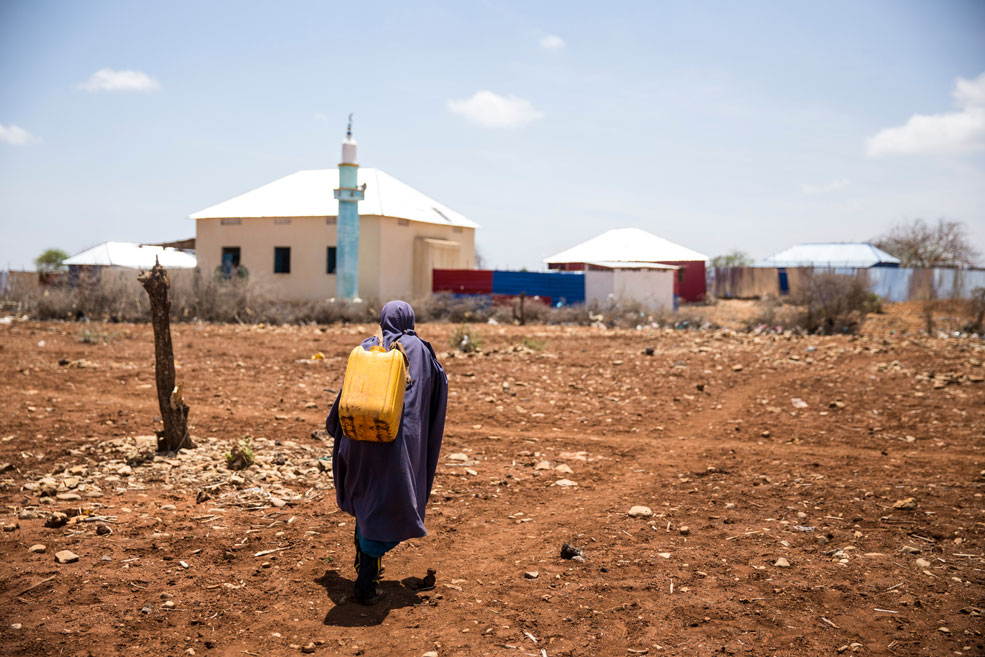
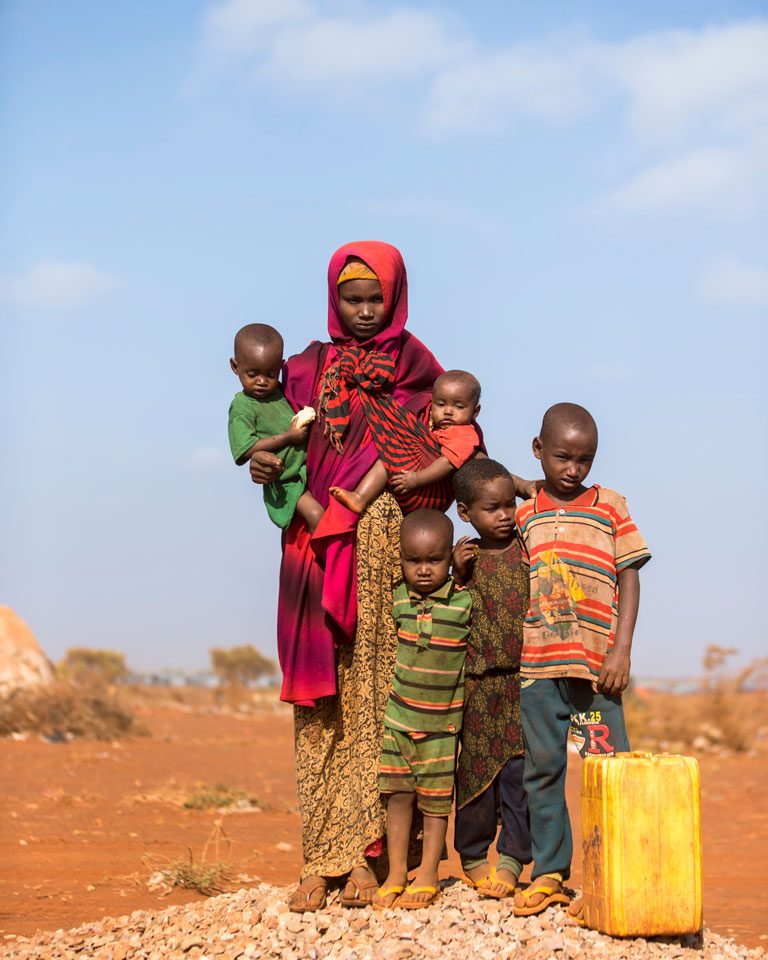
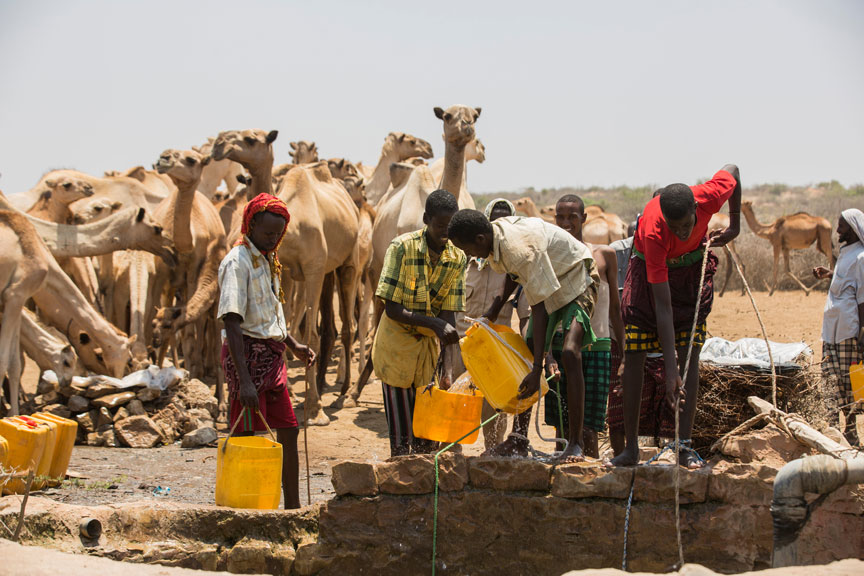
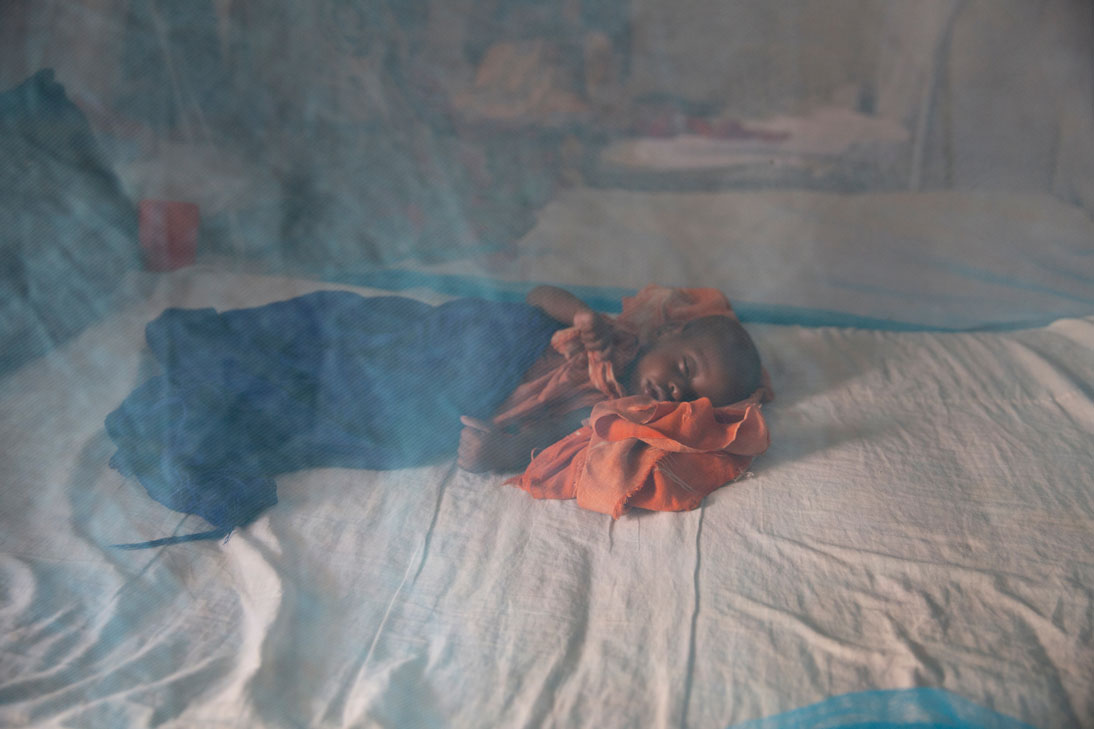
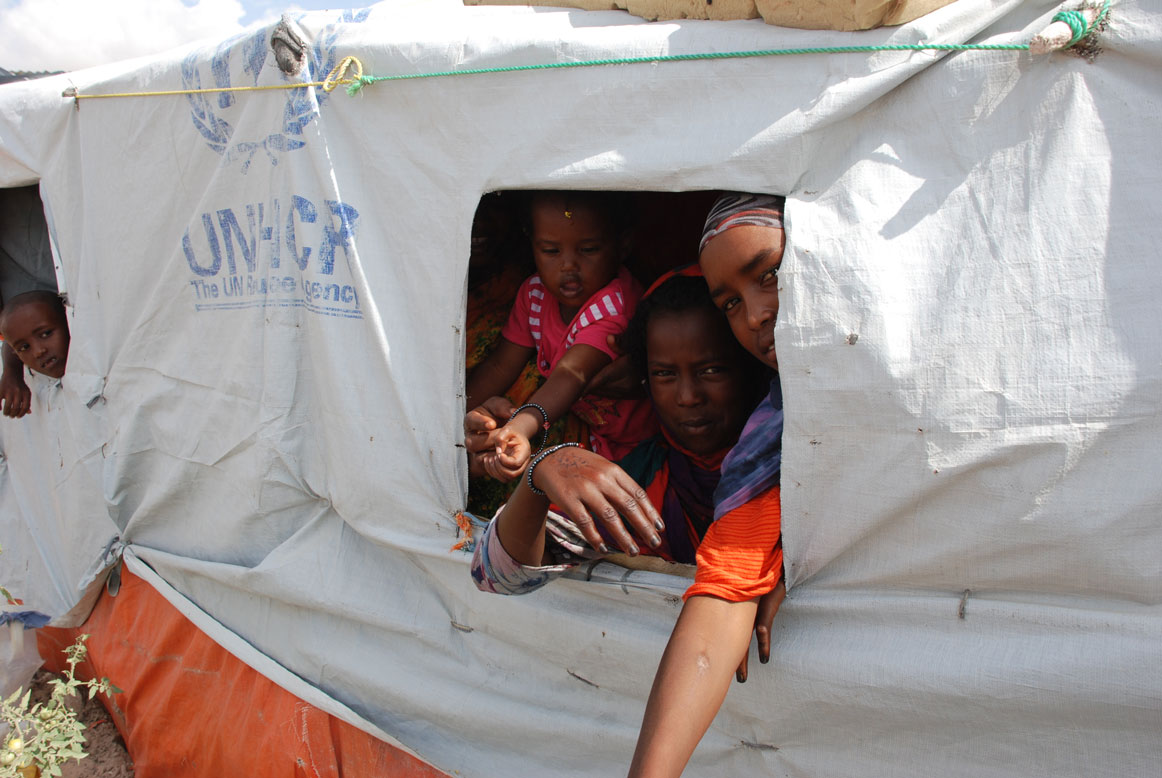
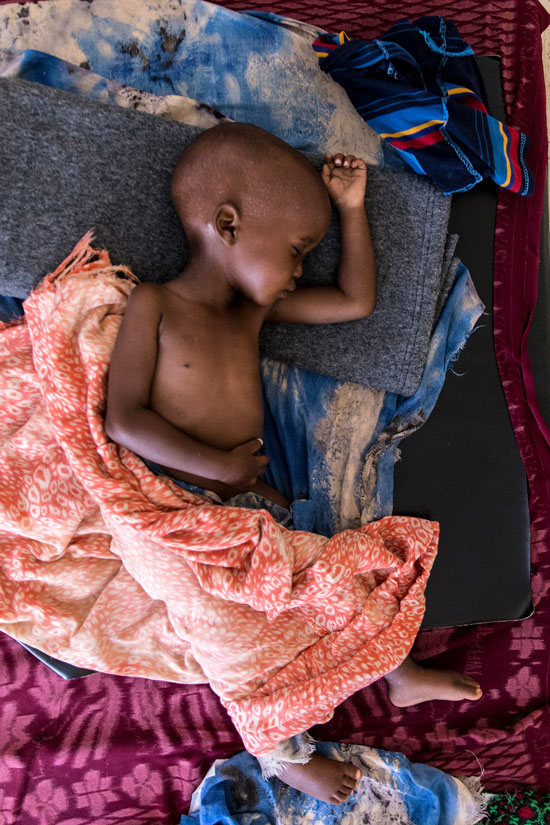
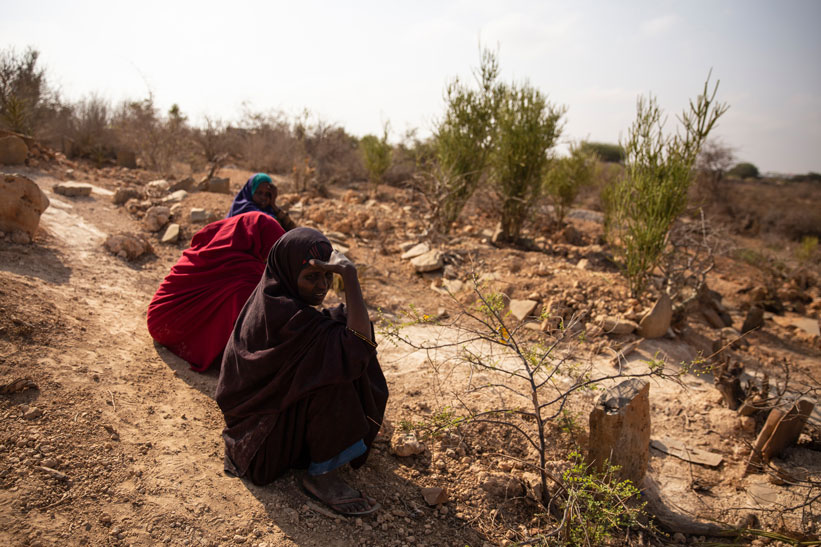
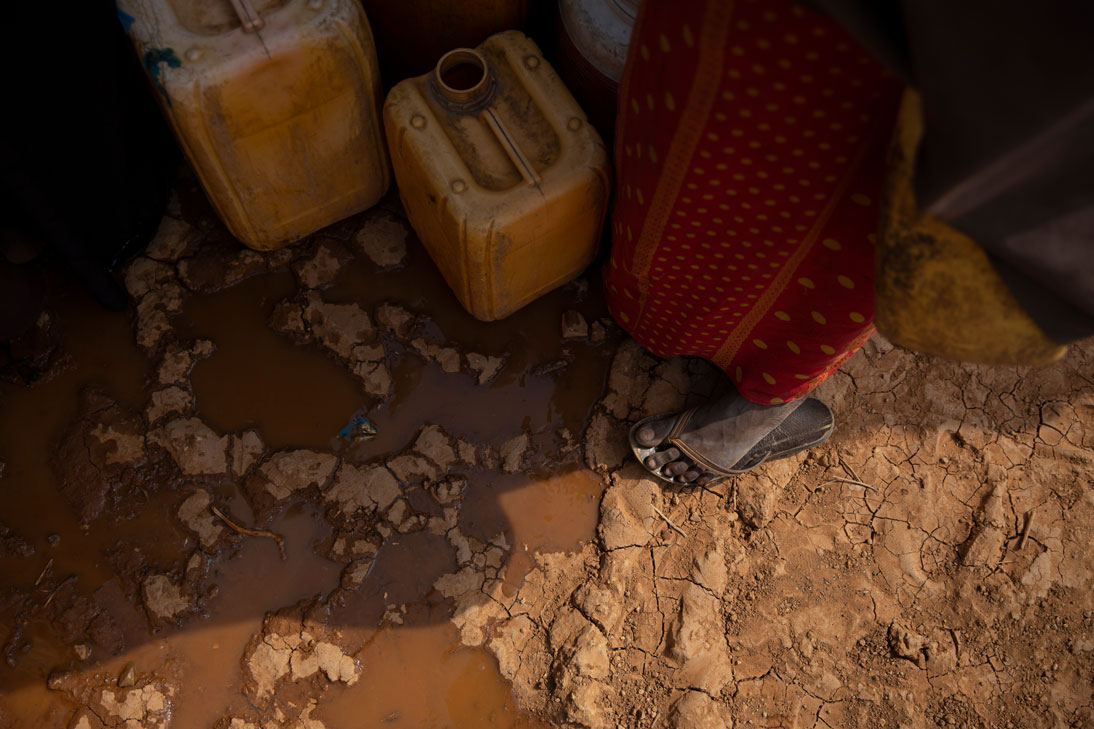
Clean water, basic toilets and good hygiene practices are critical for the survival and development of children.
Clean water, basic toilets and good hygiene practices are critical for the survival and development of children.
Only 52 percent of the population in Somalia have access to a basic water supply. Limited regulation of private water suppliers often leads to expensive prices, forcing families to fetch water from far and from unsafe open wells. Open defecation is common practice and 28 percent of the population defecate in the open[2].
Without access to clean water, toilets and good hygiene practices, the risk of contracting easily preventable diseases, such as diarrhoea, acute watery diarrhea, cholera, and respiratory infections, is high. In the past 3 years, more than 900 people in Somalia, majority of them children under the age of five, have died from cholera.
When women are forced to give birth in these poor conditions the lives of mothers and babies are also at stake.
Without access to clean water, toilets and good hygiene practices, the risk of contracting easily preventable diseases, such as diarrhoea, acute watery diarrhea, cholera, and respiratory infections, is high.
As collecting water is often the responsibility of girls and women – and it can be very dangerous. Many women and girls face conflict at water points and the risk of physical or sexual assault. Spending time collecting water also limits their time and possibility to go to school and work. This has an impact on not only the girls and women but also their communities and the economy at large.
In the conflict-affected areas and camps for displaced people, access to safe water is often further compromised; infrastructure is damaged, pipelines are in poor condition, and water collection is dangerous. People often live in overcrowded camps and without access to safe water, diseases and malnutrition spread even faster.
Related Posts
Jana: School was my escape, now I don’t have anywhere else to go.
Jana* lives with her parents and two brothers in a small one-bedroom apartment in northern Lebanon. Her father is the breadwinne…
February 2, 2023


